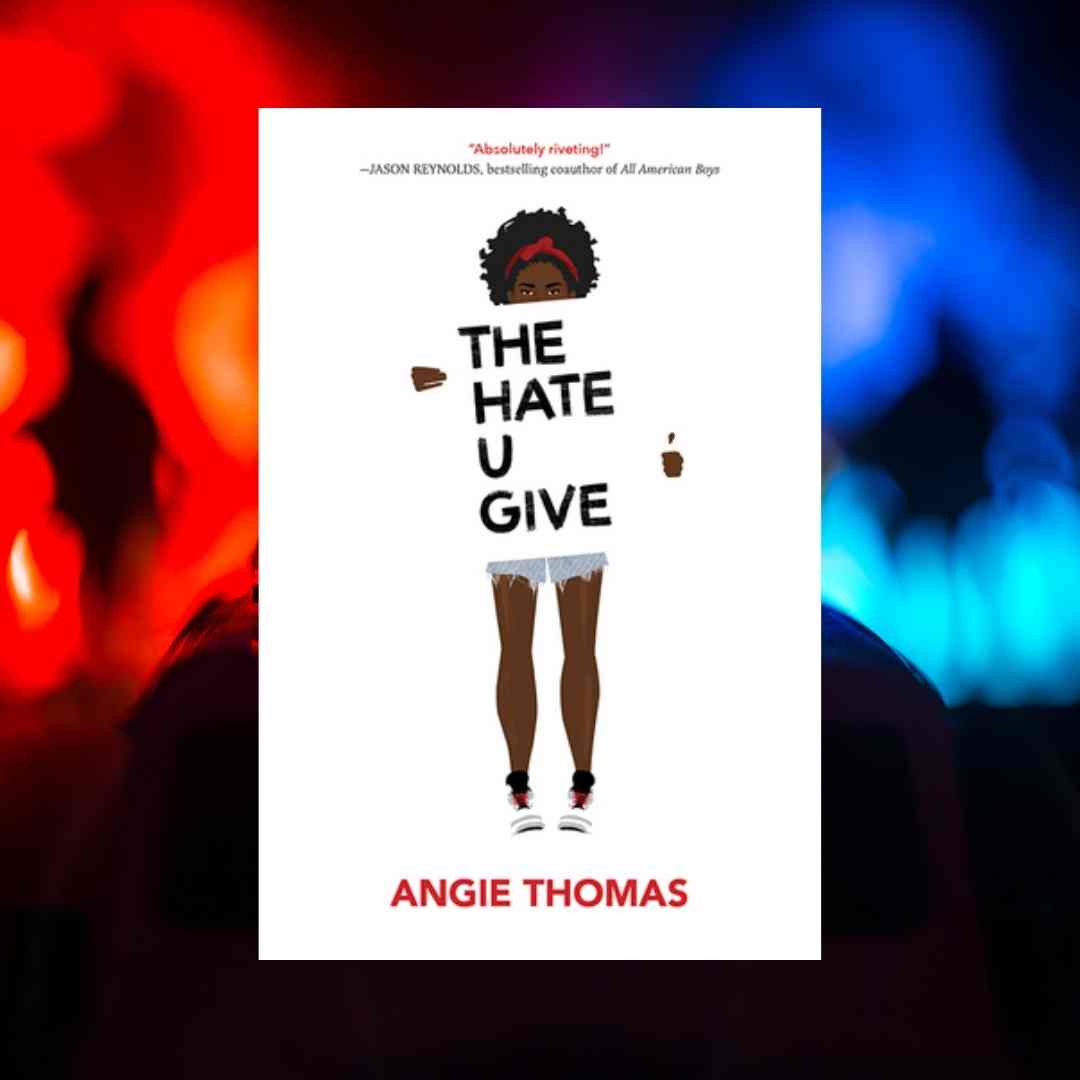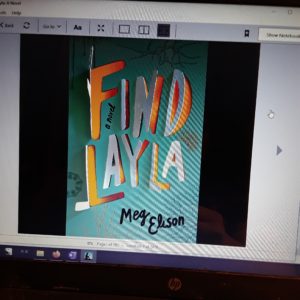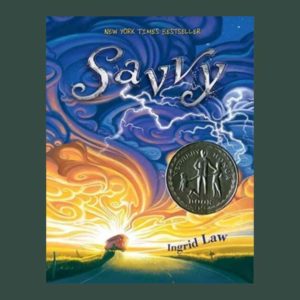Like all my favorite stories, Angie Thomas’s The Hate U Give introduced me to a whole new world. Except, however foreign it feels to me, Starr’s world exists. It’s in places I can drive to–even if they’re hard for me to see, given that I’m a white girl. My world might as well be a different planet from the one Starr grows up in. When she was twelve, her father gave her a lecture on how to survive a traffic stop. When I was twelve, my dad gave me the “ice-cream talk.” (Honey, you’re getting to an age when boys are going to start saying they love you, and you need to understand that for most of them, when they say, “I love you,” they mean it–but in the same way they mean “I love ice cream.” When they mean it for real, they’ll ask you to marry them.)
It was a good talk, and it served me well, but then, I didn’t need the other one. Up until a few years ago, I rarely encountered the police, and when I did, they were always respectful and helpful. (In the past few years, I have encountered the police rather more, and they’re still always respectful and helpful.) Like many people, I’m nervous around police officers–afraid I’ll get in trouble (Was I speeding? I didn’t think I was.) But I’ve never been afraid for my life. And growing up, I didn’t even know that in America, there were people who were afraid for their lives when they encountered police officers.
The way the history was taught at my school, I imagined racism pretty much ended with Martin Luther King Jr. I only really knew one African American growing up. (My piano teacher–and I don’t recall ever talking to him about anything other than piano.)
When I went to the University of Toledo for school, though, and met classmates who lived in Detroit and were routinely pulled over on their commute home for “driving while black,” I could hardly believe it. I felt my country had betrayed me. How could we pretend everything was good, everything was right, when this kind of thing still went on?
I was outraged.
I still am. Because, as The Hate U Give has reminded me, nothing has improved in the intervening twenty-odd years. White America is still denying there’s a problem while non-white America gets bullied by the police and the courts (and sometimes by banks, housing administrations, “welfare” organizations, school systems…)
There is an entire world, just beyond my doorstep, and if I don’t know about it, maybe it’s because I’m willfully ignorant.
And the church–oh the church. My white Christian brothers and sisters, I know some of you are saying you refuse to feel guilty about what our forefathers have done, and I agree that God doesn’t hold people accountable for the sins of their parents.
Slavery is not our sin. But not even acknowledging there’s a problem while police harass and kill members of our community–people made in the image of God–that is sin. Not acknowledging there’s a problem when whole generations of African American young men go to prison and die–that is sin.
It’s sin.
You may not feel guilty. I may not feel guilty. But we are. And if we want to stop being guilty, we need to stop ignoring the problem and start repenting. And, just to be clear, when I say repenting, I’m not just saying we should feel bad that this is going on (though I’m not sure how we can avoid feeling bad that this is going on.)
I’m saying we need to start actively working for change–in our churches, in our schools, in our communities, in our country. God is not pleased with us when we ignore oppression.
But, back to the story. I think that after the world-building, the thing I liked best was the characterization–Starr, and her friends, friends both from school and from her neighborhood. I liked getting to know Khalil especially–as more than just a drug dealer.
I don’t think I’d realized before how often the media (and thus the rest of us) describe a person who may have engaged in criminal activity by that criminality alone, as if the criminal behavior is their entire identity.
Khalil and Starr are pulled over on a (probably bogus) traffic stop, and then Khalil is shot when he leans toward the car window to ask Starr if she’s OK. Despite being unarmed and having no contraband in his car, Khalil is called a suspected drug-dealer in the news, as if that somehow makes him responsible for his own death.
Though Khalil was, in fact, dealing drugs (though not at the moment he was stopped), Starr remembers him in much more fullness. She remembers their time growing up together, their days joking around when they worked together in her father’s shop, the way he took care of his grandma (who was battling cancer) and younger brother, the way he still loved his mother even though she was an addict.
Even if it was true that he sold drugs (and he had no record, so what business did the papers have reporting such a thing?), it was irrelevant to his death. And even if it had been relevant to his death, it was by no means all he was.
Of course, this is a story. It didn’t really happen. Except it has happened. Again, and again, and again.
I love it when a book manages to teach me something without me feeling like I’m being preached at.



Pingback: New Kid – a review by The Pencil Princess Workshop